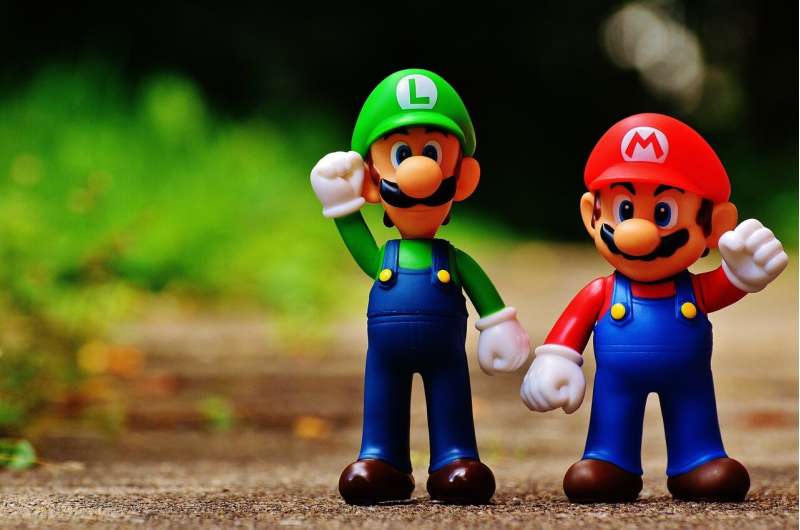Credit: Pixabay/CC0 Public Domain
Games can play an important role in dealing with loneliness among adolescents. By playing video games together, they can build deeper friendships. This was shown in research done by behavioral psychologist Geert Verheijen, who will receive his Ph.D. from Radboud University on 13 October. Playing games alone can intensify a feeling of loneliness in some cases, however.
The vast majority of young people play games regularly, on an average of 14 hours a week in the Netherlands. But the idea persists that gamers are anti-social, lonely types. "Until now a lot of research has been based on the assumption that the amount of screen time determines the social wellbeing of young people. However, my research shows that this isn't a good indicator and that the context in which the adolescents play is much more important," says Verheijen.
Friendship and loneliness
During one of the studies, adolescents were filmed while they were playing the racing game Mario Kart in one of three ways: alone, competitively, or together with a friend. Verheijen: "When friends exhibited positive and prosocial behavior, this led to a better friendship even in a competitive game. In the end, the interaction among players was the most important factor for the quality of the friendship and not the type of game being played."
In addition, games can be a valuable aid to relieving loneliness. But in some situations, they can also intensify a feeling of loneliness. Verheijen followed about 600 young people for a period of three years and discovered that loneliness increased among gamers who usually played alone. "There was increasing loneliness among young people who played games alone. But adolescents who usually played with others were consistently less lonely, both in the long and short run."
Nevertheless, games that are only played alone can be valuable in a social context. Verheijen: "Video games have become part of youth culture. They're talked about in the schoolyard, so it helps children if they can join the discussion. If parents forbid children to play games, there's a bigger chance that they'll be excluded from a group of friends."
Violence
Many parents are worried that violent games can lead to more aggressive behavior in children, but here again Verheijen adds a comment. "We followed pairs of friends for a year and recorded how much they were exposed to violent games. It appeared that, if young people have a best friend who plays a lot of violent games, they themselves will become more aggressive. In other words, the game behavior of the best friend determines the aggressive behavior of the adolescent. That suggests that it's not the game itself but rather the related interactions between the best friends that increases aggression, but this has to be studied further."
Verheijen thinks that future research should examine the social context of games. "Research on games still often focuses on hours and screen time, but the behavior involved in gaming is much more complex than that. Who gamers play with and how games are played makes an enormous difference. There is no simple answer to the question of whether games are good or bad. But video games, like films and books, do seem to be an important means of connecting people. That is still often underestimated. Only by recognizing the social context will the broader impact of games on the wellbeing of adolescents become clear."
Provided by Radboud University






















